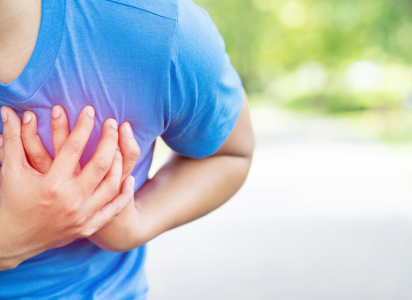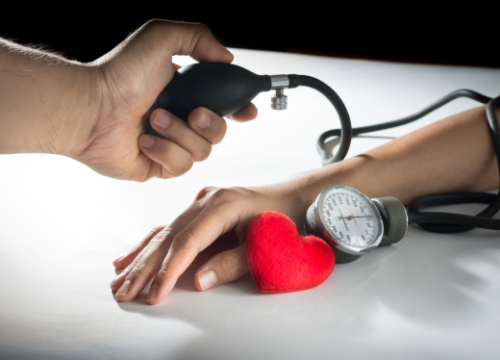
Caffeine is a substance found in coffee that boosts your mood, mental alertness, and psychical performance. It can be used in combination with painkillers to treat a migraine headache.
Research indicates that caffeine is safe only when consumed in low-moderate amounts. However, when consumed in high doses, it has dangerous and unpleasant side effects. Today on Jiale Coffee, we will be discussing the side effects of caffeine, specifically, negative side effects.
Negative Side Effects of Too Much Caffeine

The negative consequences of caffeine consumption are included below:
#1. Addiction
As much as caffeine has some health benefits, it may become addictive. Caffeine is a psychoactive drug that can be addictive when consumed in high doses over an extended period.
When you become addicted to caffeine, your body develops a tolerance to it which can lead to increased consumption, eventually leading to harmful side effects. If you find yourself consuming too much caffeine, it may be time to cut back or seek help.
I never realized how much of an addiction it is when I quit coffee and experienced two weeks of the most intense headaches I’ve ever experienced. Try quitting for a week if you don’t think caffeine is an addiction.
#2. Upset Stomach

Caffeine can have significant effects on the digestive function and hence you may want to check the amount that you consume. Consuming too much caffeine on an empty stomach can lead to stomach cramps, diarrhea, and nausea.
This is because caffeine stimulates the production of stomach acid, which can irritate the lining of the stomach. To prevent an upset stomach, consume caffeine with food.
#3. Insomnia
It is true that caffeine in coffee can help you stay awake during the day; however, it may adversely affect the quality and quantity of sleep during the night.
Caffeine is a stimulant that can increase alertness and keep you awake. Too much caffeine can negatively affect your sleep cycle and cause insomnia. If you consume caffeine too close to bedtime, it can interfere with your ability to fall asleep and stay asleep.
#4. Increased Heart Rate or Palpitations

Large doses of caffeine act as a stimulant, which causes your heart to beat faster. It may lead to atrial fibrillation, which is an altered heartbeat rhythm.
In case you notice any changes in your heart rate after consuming large doses of caffeine, consider decreasing your intake to avoid cardiovascular-related illnesses.
#5. Anxiety
Caffeine works in a contradicting manner. For instance, low and moderate doses of caffeine increase your alertness. However, when consumed in large amounts, it leads to anxiety.
Caffeine-induced anxiety disorder is common among people who intake high doses daily. Caffeine can increase the levels of the stress hormone, cortisol which can cause anxiety and panic attacks. If you’re prone to anxiety, it’s best to limit your caffeine intake to avoid triggering or worsening your symptoms.
#6. High Blood Pressure

Caffeine increases the blood pressure of the consumer, due to its stimulating effects. The people who are most affected are those already suffering from hypertension.
A study indicated that some people with hypertension saw their blood pressure rise 2 hours after consuming caffeine. To consumers with or without the disease, elevated blood pressure can lead to heart attack or stroke.
Luckily, its effects on blood pressure are temporary. However, you can risk increasing your chances of acquiring the illnesses. Therefore, it’s crucial to pay attention to the amount of caffeine you intake on a daily basis.
How Do You Flush Caffeine Out of Your System?
The best way to flush caffeine out of your system is to drink plenty of fluids, especially water. You should also exercise regularly as this helps speed up the metabolism and flush out toxins from the body. Lastly, take enough rest as your body needs time to recover and eliminate the residual effects of caffeine.
How Long Does it Take to Detox From Caffeine?
It typically takes around 12-24 hours to detox from caffeine. However, this can vary depending on several factors such as your metabolism and how much caffeine you consume regularly.
Does Caffeine Cause Belly Fat?
Research suggests that caffeine does not directly cause belly fat. However, high-caffeine beverages and snacks may contain added sugar or fat which can contribute to weight gain.
Is it Safe to Quit Caffeine Cold Turkey?

It is usually not recommended to quit caffeine cold turkey as it can lead to uncomfortable withdrawal symptoms. It is best to slowly reduce your caffeine intake and replace high-caffeine drinks with decaf alternatives, herbal teas, or water.
I cut out caffeine out of my routine cold turkey and I was shocked at the harsh symptoms of withdrawal that I experienced. The biggest, most uncomfortable withdrawal symptom was headaches that would reach into my eyeballs and leave my soul lifeless. Thankfully, this only last for two weeks and then I got my life back. The whole experience was shocking and intense but I have been drinking coffee for at least 10 years every day so logically, it makes sense that I experienced such intense withdrawal symptoms.
Conclusion
The chances of suffering from any of the side effects are reduced by monitoring your intake on a daily basis. Also, you should be aware of any pre-existing medical conditions that may contribute to these adverse effects.
Avoid consuming high doses of caffeine to prevent serious health problems. To acquire the numerous benefits of caffeine, drink a light to moderate amount and enjoy.